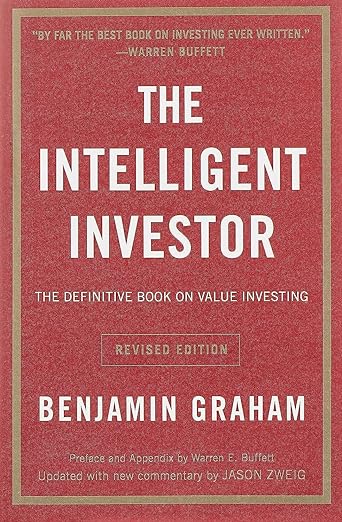Investment versus speculation
In Chapter 1 of The Intelligent Investor, author Benjamin Graham (May 8, 1894 – September 21, 1976), the father of value investing, made a clear distinction between the term “investor” and “speculator“.
Benjamin Graham, as far back as 1934, said in Security Analysis (a book he co-authored): “An investment operation is one which, upon thorough analysis promises safety of principal and an adequate return. Operations not meeting these requirements are speculative.” This was an attempt for a precise formulation of the difference between investment and speculation.
Benjamin Graham then had to defend against the charge that the definition gave too wide a scope to the concept of investment when, in the aftermath of the great market decline of 1929-1932, all common stocks were widely regarded as speculative by nature. Then came a time when Benjamin Graham’s concern became one of people using the term “investor” as a common jargon to describe anyone and everybody in the stock market. An example was a journal in 1970 using the term “reckless investors”. Benjamin Graham said this “reckless investors” term could be regarded as a laughable contradiction in terms – something like “spendthrift misers”.
“The newspaper employed the word ‘investor’ in these instances because, in the easy language of Wall Street, everyone who buys or sells a security has become an investor, regardless of what he buys, or for what purpose, or at what price, or whether for cash or on margin,” said Benjamin Graham, the father of value investing whose most famous disciple is legendary investor Warren Buffett, the chairman of Berkshire Hathaway.
Benjamin Graham said that “the distinction between investment and speculation in common stocks has always been a useful one and its disappearance is a cause for concern.”
“Outright speculation is neither illegal, immoral, nor (for most people) fattening to the pocketbook. More than that, some speculation is necessary and unavoidable, for in many common-stock situations there are substantial possibilities of both profit and loss, and the risks therein must be absorbed by someone. There is intelligent speculation as there is intelligent investing,” said Benjamin Graham.
“But,” warned Benjamin Graham, “there are many ways in which speculation may be unintelligent.” Examples that Benjamin Graham mentioned are “speculating when you think you are investing”, “speculating seriously instead of as a pastime, when you lack knowledge and proper skill for it”, and “risking more money in speculation than you can afford”.
In what he called a conservative view, Benjamin Graham said that “every non-professional who operates on margin should recognize that he is ipso facto speculating.” “And everyone who buys a so-called ‘hot’ common-stock issue, or makes a purchase in anyway similar thereto, is either speculating or gambling.”
Benjamin Graham said” “If you want to try your luck at it (speculation), put aside a portion – the smaller the better – of your capital in a separate fund for this purpose.”
His parting shot: “Never mingle your speculative and investment operations in the same account , nor in any part of your thinking.”
